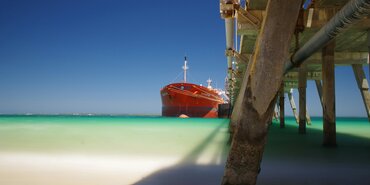Defrosted Shrimps
In the ten years from 2000 to 2010 claims against liner agents for errors in passing on reefer temperatures for refrigerated containers or failure to arrange for reefers to be plugged in to the electricity supply at the port have tripled from those reported in the previous decade. More than USD 3,000,000 has been paid out by ITIC, and this is ITIC’s second highest category of claim against liner agents (the highest category is inadvertent delivery of cargo without a bill of lading).
One such claim involved two containers of frozen shrimps shipped from Vietnam to Rotterdam, for eventual delivery to another European port. When they reached the final port of destination, the line’s agent failed to arrange for them to be plugged into the electricity supply. This resulted in frozen shrimp worth USD 273,000 being a total loss. The cargo insurers paid USD 273,000 and claimed this amount from the line. As the liability of the line was indisputable, as was the agent’s liability to reimburse them, it was felt to be a question of settling the claim on the best terms possible.
There was, however, a complication which delayed the settlement with the cargo insurers. The consignee on the two negotiable bills of lading was not the ultimate receiver, but was a trader who intended to sell the shrimp to another company. The cargo insurers had paid the consignee for the contents of both containers and obtained a subrogation of the consignee’s rights. The cargo insurers submitted their claim for reimbursement, but in the meantime the ultimate receiver (who had paid for one of the containers and was in possession of the original bill of lading) lodged a second claim for the contents of one container in the amount of USD 170,000, which represented the invoice value, bank charges, and customs costs plus USD 45,000 for lost profit.
The claim by the cargo insurers for the first container was settled by ITIC and ITIC also paid the port and destruction costs. However, ITIC was unable to settle the claim for the second container because it was not clear who was entitled to claim. The cargo insurers attempted to resolve the matter by persuading the consignee/trader to pass on the amount paid in respect of the second container to the ultimate receiver. The ultimate receiver refused to accept this payment because it did not include their claim for lost profit. ITIC was unwilling to settle a claim by either party until it was absolutely clear who was legally entitled to claim.
Although time extensions were granted to the cargo insurers the last of these eventually expired and the ultimate receiver failed to commence legal action within the twelve month period provided in the bill of lading, so the second claim became time-barred and remained unpaid.
- Date
- 01/03/2011





